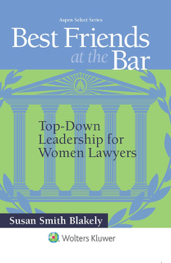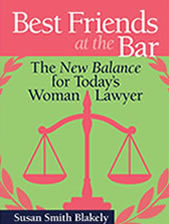Is this a confusing title? Probably. That is because “adding value” can be a confusing. Or rather, when to add value and when not to can be a confusing choice. Let’s try to make it easier.
I discuss “adding value” in my book, Best Friends at the Bar: Top-Down Leadership for Women Lawyers (Wolters Kluwer/Aspen Publishers 2015). It is a concept that most leaders do not understand, and there is a very good reason for that. Most leaders think that they know everything about everything and that whatever they have to say on the subject needs to be said.
Not so much. Consider this. You are a leader in a law firm. A junior lawyer comes to you with an idea that she thinks is a really good idea, and she is very excited about the possibilities. Most often what you, the leader, does in response is to interrupt and wax prolific about all you know on the subject, how many times you have addressed the issue and how you can improve the idea of the junior lawyer. If you think that approach is unproductive, you are right. That kind of “adding value” is discouraging to the junior lawyer and most likely will be the beginning of a not-so-valuable relationship.
How about another approach? You are a leader in a law firm, and the same young woman lawyer comes to you very excited about her idea. You listen — yes, actually listen instead of speak. You let this enthusiastic young woman talk about her idea and all of its nuances, and you LISTEN. At the conclusion of her “sell,” you compliment her on her initiative and tell her that you hope she will continue this kind of innovative thinking. You resist being the center of attention in favor of encouraging and mentoring a junior person. If the idea needs improvement and refinement or further discussion, there is plenty of time for that once you have established the foundation that the idea is worthy of your consideration.
Leadership is difficult. It means having the patience to listen, encourage and develop talent even if there are hundreds of pieces of paper on your desk that need attention. It means not needing to be in the spotlight all the time and putting someone else there to shine.
But, effective leadership pays off in spades. It should never be overlooked. Effective leaders know that and do not have to “add value” all of the time. They have learned that much of what we say does not have to be said. They have learned when to talk and when to listen.
For more on adding value, see this recent blog by my leadership mentor and the world-recognized leadership guru Marshall Goldsmith. The comments of his C-Suite clients will help drive these concepts home beautifully.













